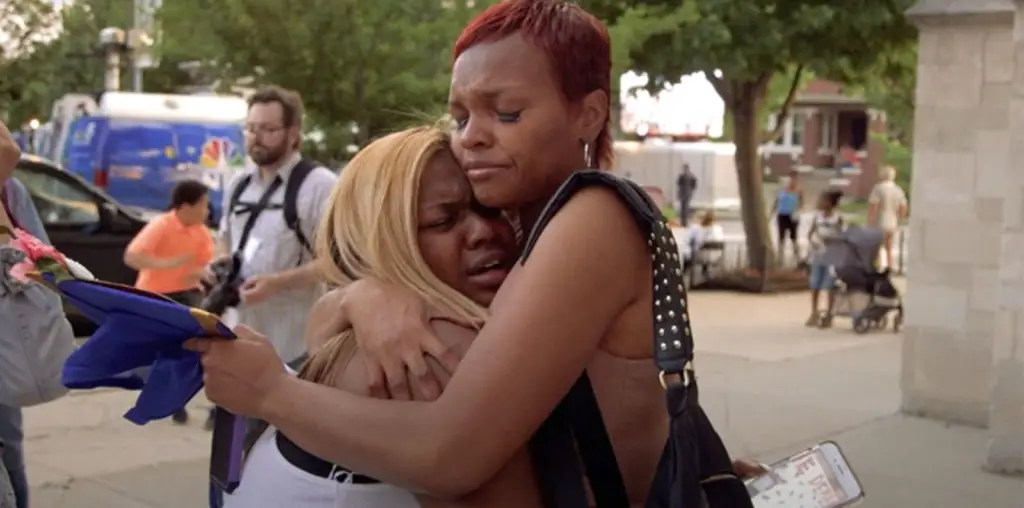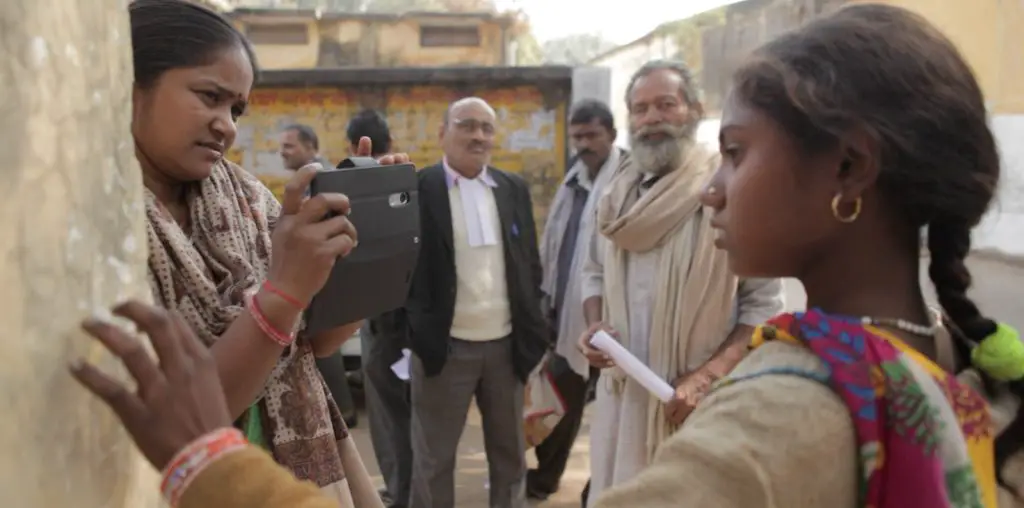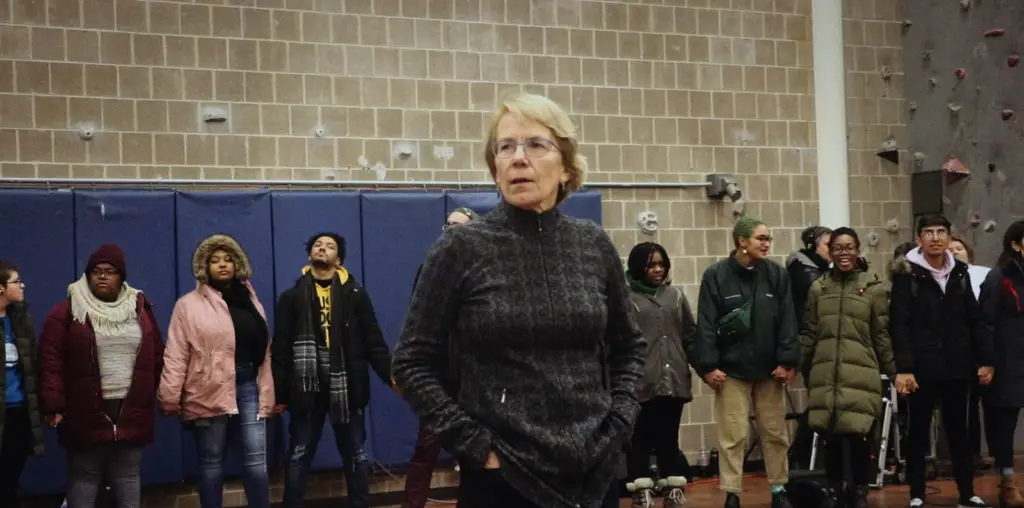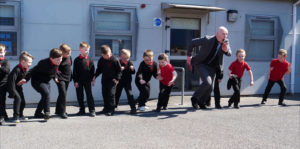
There is a metaphorical quality to the opening of co-writers/co-directors Declan McGrath and Neasa Ní Chianáin’s documentary Young Plato. We see an aerial shot of Belfast, a series of buildings and homes in a grid-like formation. Down below, as we suspect, things are likely very different compared to this bird’s eye view. So, you may ask, what is the metaphor at play here? This perspective is precisely the distant vantage point taken on by most Analytic Philosophers working in big-name academic institutions. Ivory Tower Philosophers are quite detached from those doing nitty-gritty applied Philosophy down below.
Young Plato focuses on Kevin McArevey because he’s precisely one of these individuals doing applied Philosophy. He’s the headmaster of an all-boys primary school in Belfast. Apart from his duties as headmaster, McArevey also instructs a class in Philosophy. Any skepticism one may have about teaching such a challenging discipline as Philosophy to primary school children is quickly allayed once we see the educator in action.
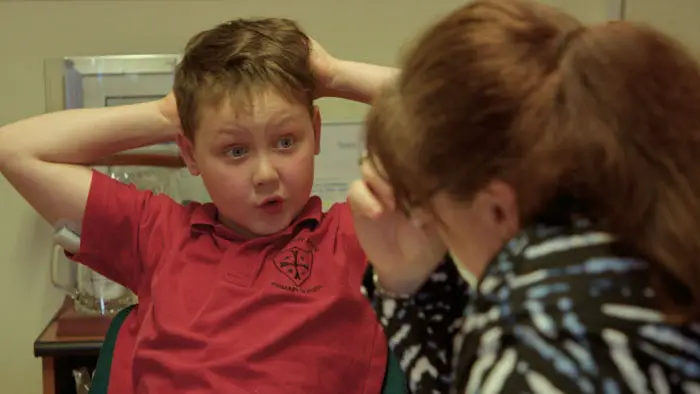
“McArevey introduces Philosophy as a type of conflict resolution.”
McArevey introduces Philosophy as a type of conflict resolution. He asks questions such as, “Should you ever take your anger out on someone else?” He allows the boys to share their views, and they enthusiastically contribute, which sets everyone on a path toward truth in the true spirit of philosophy. McArevey sparks curiosity and interest in the boys by meeting them at their level. He asks them to ponder questions such as, “Is time travel possible?” He even asks them to mull over more profound questions such as, “Are we all one or very different as people?” while exposing the children to small doses of Heraclitus, Socrates, and Seneca.
McArevey and his staff spend their day putting out the many fires inherent in operating an all-boys primary school — fights between students, misbehavior due to underlying domestic and parental conflicts, and a lack of focus. Making matters worse, the neighborhood around the school is working-class, and poverty, drugs, and violence are a part of everyday life. A much larger tension also reaches back to Ireland’s recent history. Anyone with any knowledge of history is well aware of The Troubles that lasted for about 30 years between Unionists and Loyalists on one side wanting to stay part of the United Kingdom and Irish Republicans and Nationalists who wanted Northern Ireland to become part of a larger country.
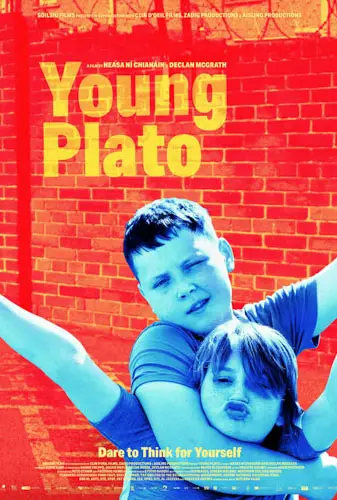
"…McAverey and his staff's love for the children comes through clearly."
